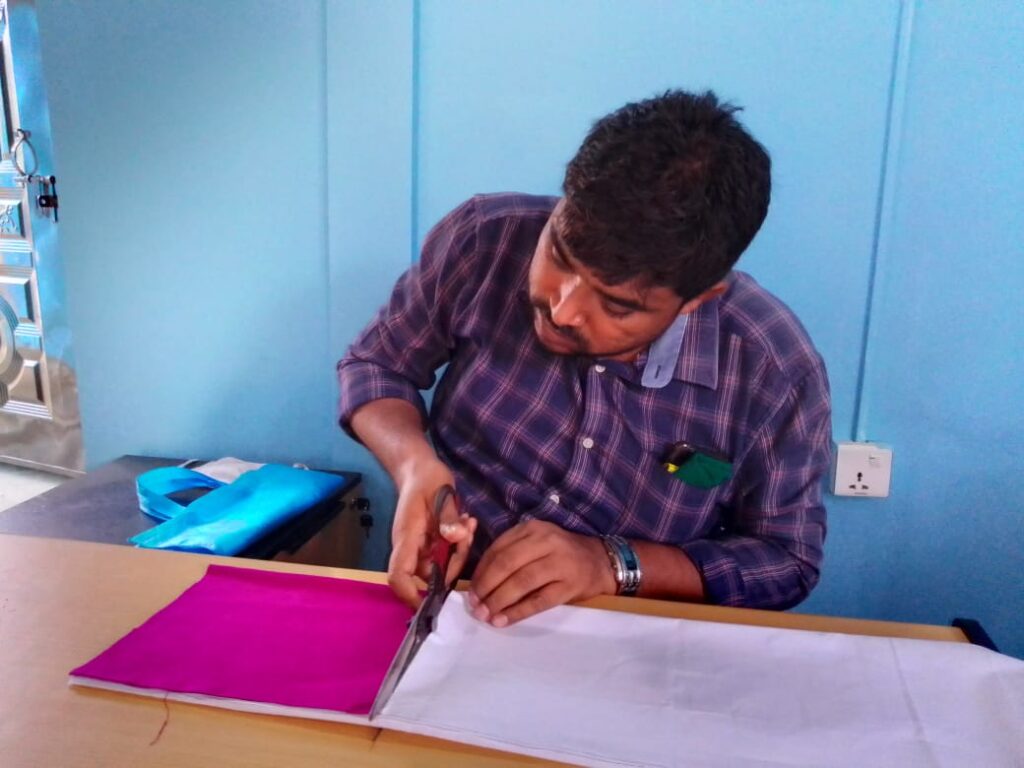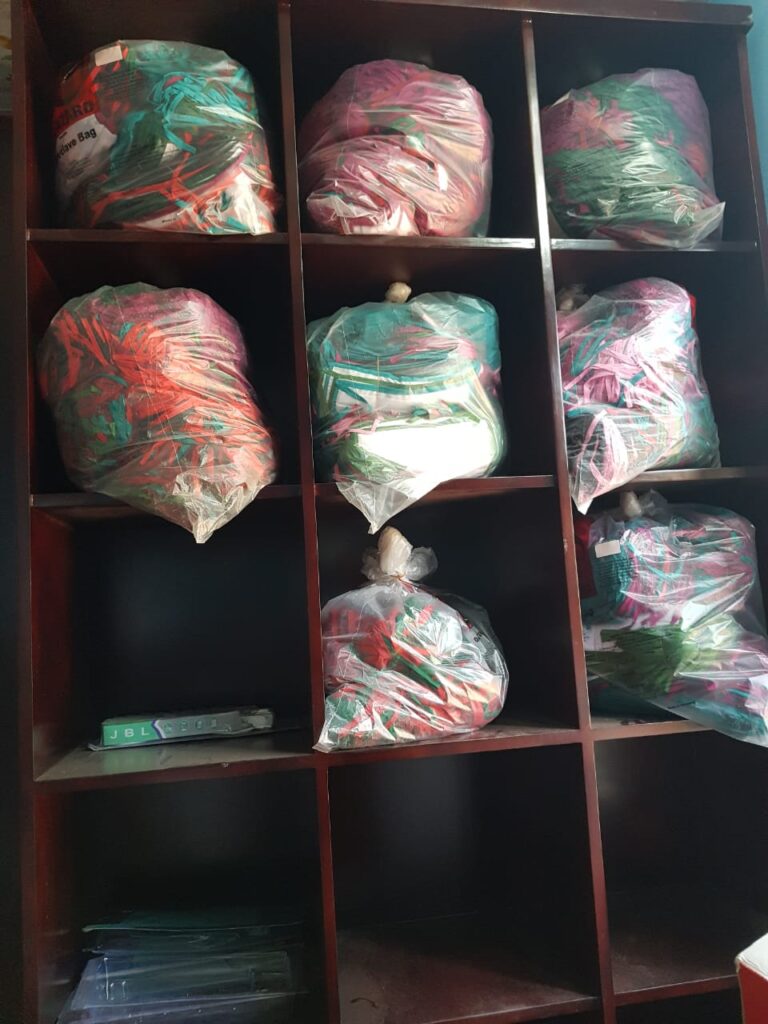MOAS has launched several COVID-19 humanitarian responses over the last week, including a new project manufacturing Civil Surgeon approved masks for distribution in Cox’s Bazar.
Due to the novel coronavirus pandemic, MOAS’ regular flood and water safety training and drowning prevention programming in Bangladesh has been suspended. All resources and capacity have now been redirected to COVID-19 emergency response. A workshop in the fishing village of Shamlapur, established in partnership with NONGOR and funded by IOM, originally intended to manufacture water safety equipment, has already been repurposed for the production of reusable, washable cotton masks to distribute to the crisis affected community.
Aware of the challenges of enforcing preventive measures against the virus in the context of Cox’s Bazar and the refugee camps, MOAS proposed transforming our newly built workshop into a space for facemask production. We are aware that handmade facemasks are not substitutes for surgical masks and N95 respirators. However, in this context of crowded living conditions where alternative masks are not available there is research which supports the use of handmade masks to help prevent further disease spread.
The prototype that MOAS developed for this project was approved by the Cox’s Bazar Civil Surgeon. Our concept was supported by IOM, the program has been rolled out across multiple IOM livelihoods partners and the MOAS design will now be used by all involved.
We are delighted that in addition to providing preventative measures to the community, this project will also act as a livelihoods parachute for local host community workers, many of whom have lost income due to the shutdown. We have engaged a fantastic team of local tailors working in the production hub and from home, to make this project more accessible and beneficial to the wider local community. We are also purchasing all our materials for the production hub from local businesses to further support the host community during these uncertain times.
Over the past week, the team in Bangladesh has already produced over 5000 facemasks and are getting more efficient by the day. Just today the first 3000 facemasks were delivered to IOM by the MOAS team to be distributed to public service bodies such as, police, Civil Defence, fire service and CPP. Whilst MOAS continues to produce these masks, we will be stockpiling the them until they are ready to be distributed across the region. The distribution will be coordinated by IOM, the Livelihoods sector and local administrators who will also provide information leaflets on basic hygiene measures as well as how to use and effectively sanitise the facemasks.
About MOAS
Founded by the Catrambone family in response to a shipwreck off the Italian island of Lampedusa that killed 368 people in October 2013, MOAS aims to provide a model for the engagement of civil society in tackling humanitarian crises around the world.
Upon launching its first mission in August 2014, MOAS was the first non-governmental organisation to run a Search and Rescue operation in the Mediterranean. Over the course of three years at sea, MOAS rescued and assisted more than 40,000 children, women and men in the Central Mediterranean and Aegean.
Having suspended SAR operations in August 2017, MOAS continues to monitor the situation at sea, and to advocate for the creation of safe and legal routes to protect desperate people seeking peace and security. In December 2017, in partnership with UNHCR, we organised an aerial evacuation mission to fly 74 vulnerable individuals out of Libya to safety in Niger.
In September 2017 we shifted our operational focus to Bangladesh, where we delivered 40 tonnes of humanitarian aid to support the government’s response to a massive influx of Rohingya refugees fleeing violence in Myanmar. Our team in Cox’s Bazar set up two Aid Stations, or primary health centres, to serve the refugee camps of Shamlapur and Unchiprang, as well as the local Bangladeshi communities.
To December 2018, the MOAS Aid Stations provided vital care and medication to over 90,000 patients. In April 2018, following reported sightings of Rohingya attempting to flee Myanmar by boat, we also ran a month-long observation mission in the Andaman Sea, drawing international attention to the need for a coordinated Search and Rescue strategy in the region.
Our mission in Bangladesh is now focused on delivering Flood and Water Safety Training to Rohingya volunteers, empowering refugees to support their own communities in preparing for the dangers of the monsoon season. Meanwhile we have launched a new mission to Yemen, where we are delivering vital pharmaceutical aid and famine relief to alleviate suffering and save lives.
If you are interested in the work of MOAS and our partners, please follow us on social media, sign up to our newsletter and share our content. You can also reach out to us any time via [email protected]. If you want to support our operations, please give what you can at www.moas.eu/donate.


